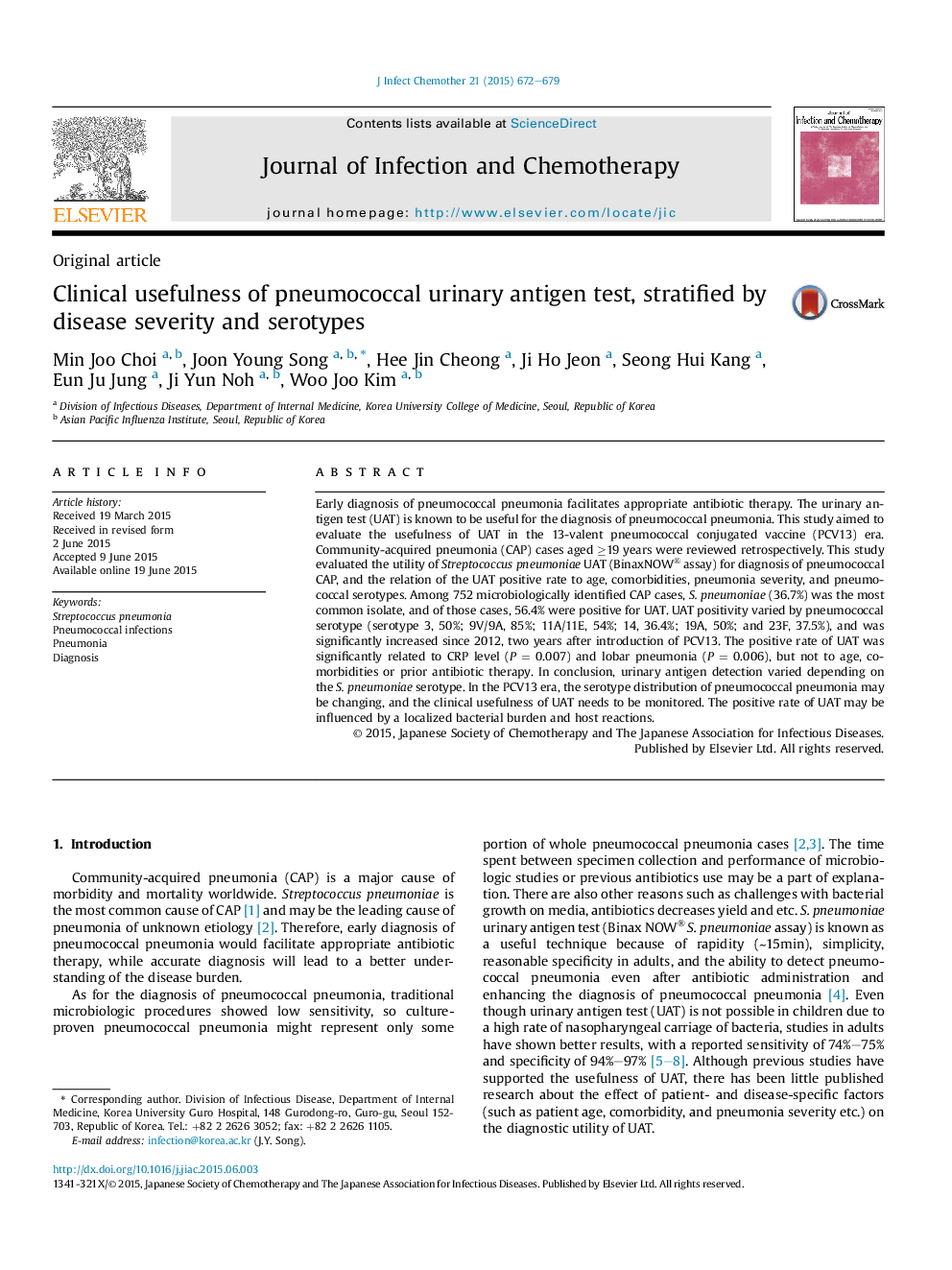| Article ID | Journal | Published Year | Pages | File Type |
|---|---|---|---|---|
| 3376828 | Journal of Infection and Chemotherapy | 2015 | 8 Pages |
Early diagnosis of pneumococcal pneumonia facilitates appropriate antibiotic therapy. The urinary antigen test (UAT) is known to be useful for the diagnosis of pneumococcal pneumonia. This study aimed to evaluate the usefulness of UAT in the 13-valent pneumococcal conjugated vaccine (PCV13) era. Community-acquired pneumonia (CAP) cases aged ≥19 years were reviewed retrospectively. This study evaluated the utility of Streptococcus pneumoniae UAT (BinaxNOW® assay) for diagnosis of pneumococcal CAP, and the relation of the UAT positive rate to age, comorbidities, pneumonia severity, and pneumococcal serotypes. Among 752 microbiologically identified CAP cases, S. pneumoniae (36.7%) was the most common isolate, and of those cases, 56.4% were positive for UAT. UAT positivity varied by pneumococcal serotype (serotype 3, 50%; 9V/9A, 85%; 11A/11E, 54%; 14, 36.4%; 19A, 50%; and 23F, 37.5%), and was significantly increased since 2012, two years after introduction of PCV13. The positive rate of UAT was significantly related to CRP level (P = 0.007) and lobar pneumonia (P = 0.006), but not to age, co-morbidities or prior antibiotic therapy. In conclusion, urinary antigen detection varied depending on the S. pneumoniae serotype. In the PCV13 era, the serotype distribution of pneumococcal pneumonia may be changing, and the clinical usefulness of UAT needs to be monitored. The positive rate of UAT may be influenced by a localized bacterial burden and host reactions.
